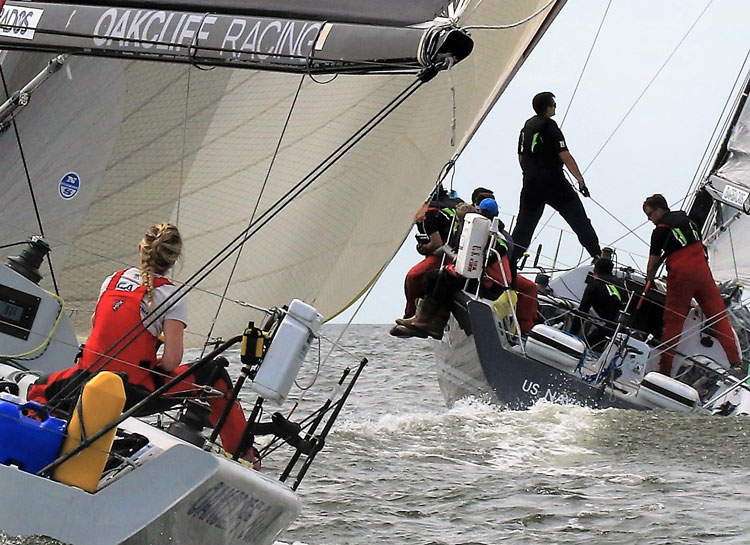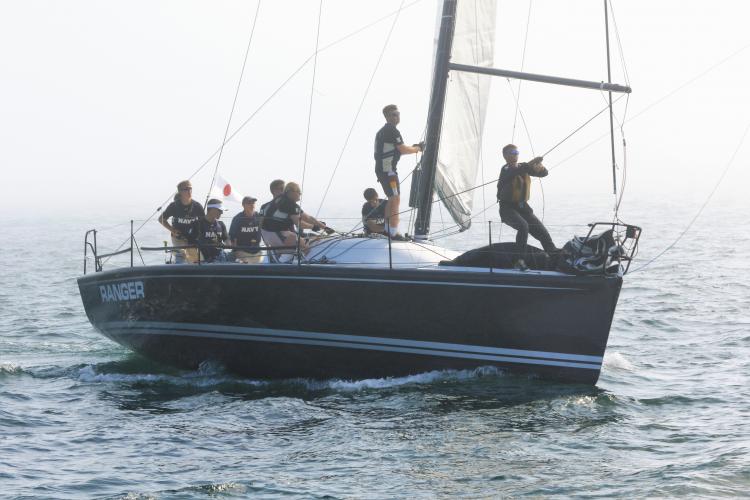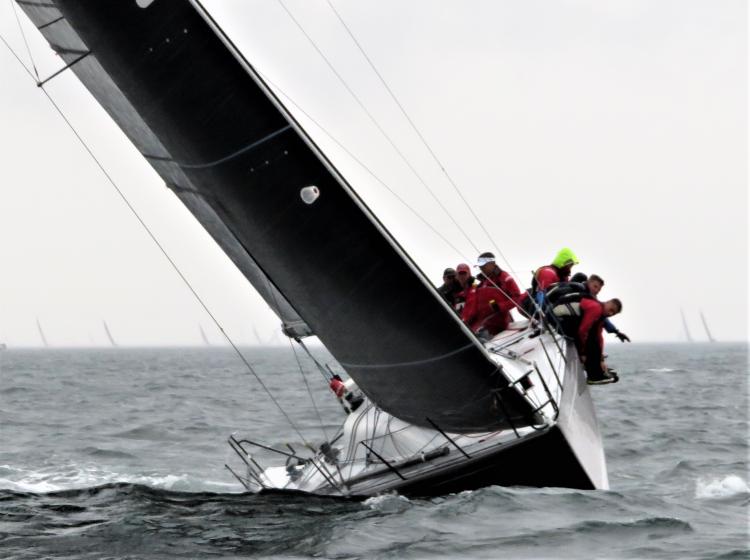What makes a good passage crew?
If you ask most skippers needing crew for an offshore ocean passage what is the most important criterion they are looking for when selecting crew, they will most likely say offshore experience. It is an understandable, logical choice to think about experience as being vital because who wants a newbie that has to be taught everything? I must confess when I think of my new sailor self and all the silly mistakes I have made in the process of earning my sea legs and stripes, I would be hesitant to take myself as crew.

The reality is that offshore experience by itself does not make for good passage crew. This is proven when we ask these same skippers at the conclusion of their successful offshore passage to describe their good crew. They will use so many other terms to describe them and not once will they say it was their offshore experience.
That brings up the question of what are the traits of good crew? What should a captain be looking for in potential passage crew? The traits to consider can be described as follows:
1. They are easy going and get along with everyone
This always comes up as the first important trait to describe how someone was as crew when things worked out well. What it really means is that person’s temperament matched the captain’s and other boat crew’s well. Interpersonal conflict on an offshore boat is real, and it can make the difference between a memorable, enjoyable passage when it does not flare up. When it does rear its ugly head, it can make it the voyage from hell.
High compatibility is measured by people you enjoy being around and with. Having someone aboard whom you would not enjoy being with under normal life circumstances is a recipe for conflict. There is truth in sailing only with people you really like. Do not underestimate this requirement. A boat at sea is a very small space to share with others.
2. They follow orders without complaint.
Sailors are opinionated by nature. Just ask a group of sailors what is the best anchor, best winch, or best anything on a sailboat, and see how many opinions will be strongly voiced. A considerate crew that understands the heavy burden of command and the responsibility of ship and crew safety would not challenge or second guess a captain. If the situation warrants, they will respectfully ask if another option could be considered. If the captain is willing to listen to another opinion and consider other options, the crew can share their experience and expertise on the matter. The truth of the matter is that there are several ways to accomplish most things on sailboats. There are “no absolute one way” and “all others are wrong” rules except rules of the road.
On the other hand, a good captain will gather the crew and inform them of the situation. If there is no urgency requiring immediate action, the captain will describe what he believes the fix would be. At that point, time and situation permitting, he or she will ask the crew if anyone has any alternate ideas. Once the debate and discussion are over, a decision is made. Then, captain’s orders need to be carried out.
The other side of this trait is the deep respect and understanding when crew members are awakened at 3 a.m. to help drop the main; there is no questioning why it has to be done in the middle of the night, in pitch darkness, on a pitching deck. All hands are on deck, and the crew work as a team to control the main and lash it down. (As it turns out, the outhaul line had chafed through and exploded with a loud bang during that shift, leaving the main flogging wildly in the fresh breeze.)
3. They pitch in without being asked.
A boat requires many tasks to keep running. Having knowledge about boats helps a crew member to see things that need to be done. They will take care of things without being asked. The lines on the cabin top in a jumbled mess from the 3 a.m. main lowering need to be coiled, sorted, and stowed. Dead flying fish on the deck from the last night need to be hunted and returned to the sea before they adorn the deck with their distinctive aroma. Inexperienced crew will simply ask the captain what could they do to help. Acknowledging the fact that there are so many things that need to be done and that everyone can pitch in is fundamental to this trait. It takes many hands to run a ship well.
4. They have a positive attitude.
‘The cup is half full’ view on life is a contagious, positive energy that can affect an offshore boat. After several days of sleepless nights enduring challenging wind and seas, being able to smile and laugh with others can be the magic medicine to help everyone forget the hardship of the sea. Crew who can muster delicious meals from the galley are greatly appreciated. Crew who can start a sing-along are a delightful distraction. Crew who can tell captivating stories, or engage everyone in belly deep laughter with their sense of humor: these are the positive spirits that see each sunrise as a miraculous event worth celebrating.
They are crew that see each sunset as an event worth pausing to appreciate. They marvel at the bright starry night of the Milky Way in the pitch darkness of offshore sky. They grin and laugh in genuine delight as they are drenched by a rogue wave that snuck on them while at the helm and ask for a second one again to rinse the shampoo in their hair. These crew are worth their weight to the captain and other crew because of their positive spirit and what it adds to the entire passage.
5. They are eager to learn.
The experienced crew will simply ask how the captain prefers doing things on their boat. It is an acknowledgment that the captain may not do things the same way they would, and therefore, it’s respectful to ask. If it is a technique you are not familiar with, then you will ask to be shown and learn a new one. A more inexperienced crew may want to learn more in depth and understand the advantages of this method or other ways of performing the same task. These enlightened crew see the offshore passage as a hands-on learning opportunity to expand their skills and experience.
6. They are calm under pressure.
This crew is calm when the winds have increased to 40 knots and the seas are now routinely washing over the deck, as the first 10 hours have passed and another 12 or 18 hours must be endured. The true colors of the crew will bubble to the surface. Those that have deep respect and love for the ocean will marvel and quietly look at the power of nature with awe.
They will stand double shifts at the helm to let a seasick crewmember rest and recover, or offer to nap in the cockpit as backup crew if needed or within earshot of the companionway. They will ask what else they can do to help until the storm passes. They understand that all storms shall pass, that the sun will rise eventually, that the light of day will make the seas less frightening, that the gentle breeze will return. They understand that to experience the euphoric highs of offshore sailing one must also embrace the crushing lows.
How do we find such crew with these wonderful traits?
The only sure way to assess potential crew is to actually sail with them. A day sail is not enough. Better to plan a holiday weekend long trip with one overnight passage. If you rely on just the interview and spend a few hours talking to them, you will not probe deep enough to see these traits. You must judge their actions while actively sailing. These important traits will be self-evident by their behavior and cannot be fully revealed while talking about past experiences.
It takes time and effort to evaluate potential crew. With time one will start to compile a list of top passage crews. They will be people that have passed the initial trial test and have shown their true offshore traits. They will become sailing friends and buddies that you would not hesitate to invite to join you on your next passage adventure. They will be people you look forward to spending time with offshore on a small boat heading to distant horizons.
Article by Bassam Hammoudeh






